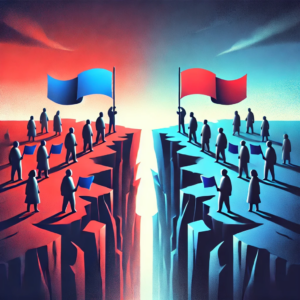 Polarization relates to the debt collection industry in several ways, reflecting the divisions in public perception, policy, and business practices. Here’s how polarization manifests in this context:
Polarization relates to the debt collection industry in several ways, reflecting the divisions in public perception, policy, and business practices. Here’s how polarization manifests in this context:
1. Public Perception
- Consumer Advocacy vs. Industry Needs: Some people view debt collectors as necessary for maintaining credit systems and enforcing accountability, while others see them as aggressive entities that exploit vulnerable populations.
- Socioeconomic Divide: Individuals with financial stability may support stricter collection practices to ensure economic order, whereas those with financial struggles may advocate for leniency or systemic reform.
2. Policy and Regulation
- Diverging Political Views: Policies governing the debt collection industry often divide along political lines, with some advocating for consumer protection laws (e.g., limiting communication methods or interest rates) and others prioritizing business freedoms to recover debts efficiently.
- State-Level Disparities: States vary widely in their regulation of debt collection practices, reflecting localized political and cultural divides.
3. Industry Practices
- Approach to Debt Recovery: Some companies adopt empathetic and consumer-friendly approaches, aiming for collaboration with debtors, while others rely on aggressive tactics, leading to public backlash.
- Technology and Transparency: Advances in technology polarize industry stakeholders. Consumers may welcome innovations that provide clarity, while traditionalists in the industry might resist changes that impose additional costs or oversight.
4. Economic and Social Impact
- Inequality and Debt: Polarization around economic inequality often intersects with debt collection. Critics argue that the industry disproportionately affects low-income individuals, while proponents claim it’s a necessary function to stabilize financial systems.
- Trust Issues: Polarized trust levels in the industry stem from its history of practices that consumers and watchdogs have criticized as unethical or unfair.
Conclusion
Polarization in the debt collection industry affects its regulation, reputation, and future evolution. Bridging these divides requires balancing consumer protection with the legitimate needs of creditors and aligning industry practices with ethical standards.

